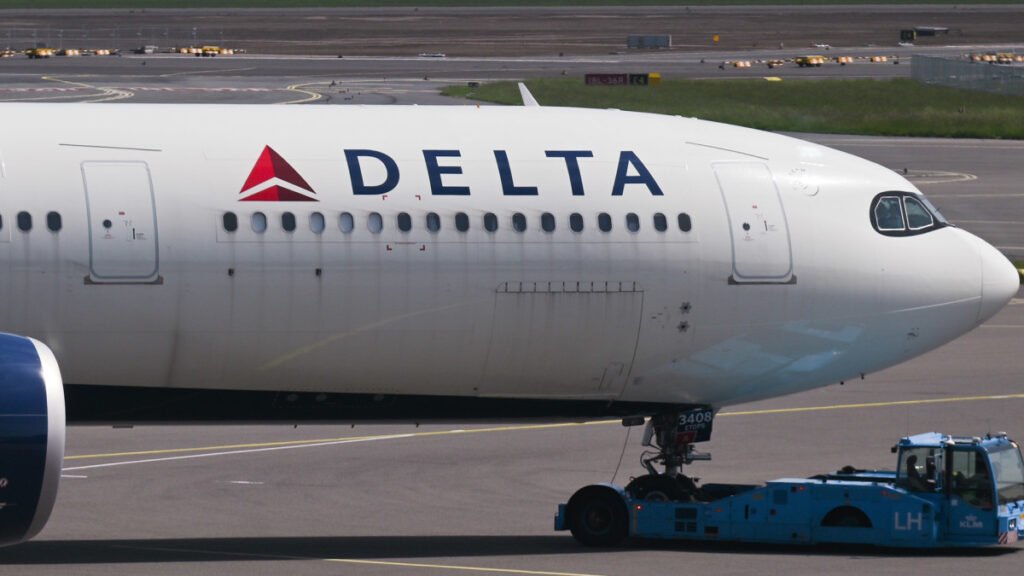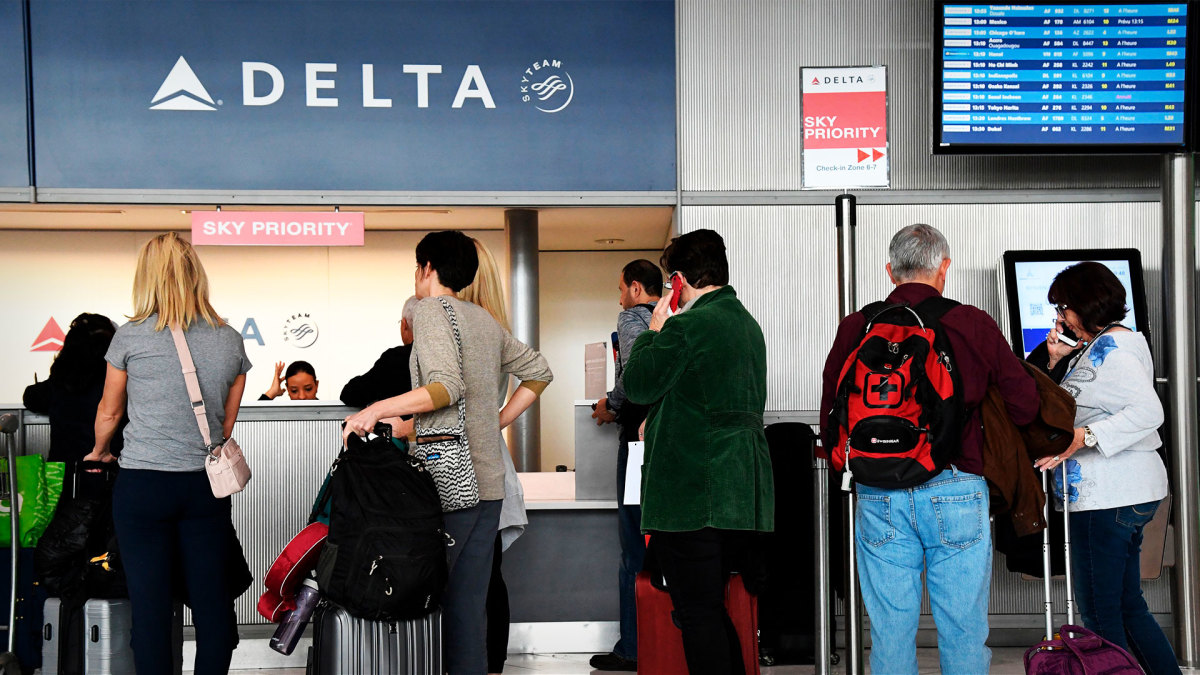Delta Air Lines is the most valuable airline in America and reported an operating profit of $2.11 billion in the second quarter of 2025, which is far better than any of its competitor airlines in the United States.
When you read that, naturally, you assume that Delta Air Lines must be doing a great business flying customers around. In fact, you may be shocked to find that’s not actually the case.
💵💰Don’t miss the move: Subscribe to TheStreet’s free daily newsletter 💰💵
Despite the fact that Delta had a substantial profit in Q2, if you exclude revenue from one specific area of its business – which is not flying planes – then the airline would actually have operated at a loss.
It’s not the only airline that would be in the negative without this source of revenue, either. American Airlines, Southwest Airlines, and United Airlines had a combined $14 billion in operating profits, and they all would have instead operated at a loss if you removed revenue from this program.
Image source: Guay/AFP via Getty Images
Where is Delta Air Lines really earning its money?
So, if flying is not Delta Air Lines’ bread and butter, then what is?
Surprisingly, it is the airline’s loyalty program. According to The Economist, without the revenue from this program, Delta would have reported negative profits. And, if you exclude loyalty revenue from their books, so would United Airlines, American Airlines, and Southwest Airlines.
Related: Southwest Airlines cancels hundreds of flights from July to Sept.
While airline loyalty programs can involve just earning frequent flyer miles by signing up for a free account, that’s not where the money is coming from.
Instead, it’s the relationship that Delta and other airlines have with credit card issuers that’s the real cash cow for these businesses, and that is tipping them over into the level of profitability.
Airline loyalty programs help airlines make billions
As The Economist explained, credit card issuers and airlines have come up with a very lucrative partnership model. Airlines sell card issuers miles, which the card issuers give out as rewards to customers who sign up for the card. The card issuer then redeems the miles to travel.
Being able to offer miles as a reward is a huge benefit to the card companies because travel credit cards are popular, so customers are encouraged to sign up.
Cardholders are also encouraged to charge more in order to earn the extra miles.
Related: TSA is stopping passengers for an incredibly embarrassing reason
Airlines make out like bandits on this deal, too, with American Express writing Delta a $2.1 billion check in the April to June quarter (an amount that, coincidentally, just about equals the total profit that the airline made during the year).
American Airlines got a slightly smaller check of $1.4 billion from JPMorgan Chase, which is still a pretty decent haul, and Chase paid United around $800 million. With so much money coming in from these other sources, airlines are able to lower their fares to attract more travelers.
Why selling miles benefits airlines so much
Selling miles comes at a huge benefit to airlines, not just because of the billion-dollar checks, but also because the airline industry is volatile and subject to big swings in demand.
Selling these miles allows airlines to collect cash up front from the credit card companies. It can pocket this money to use for long-term capital investments.
Airlines can also try to direct flyers redeeming miles to less profitable flights, since they have control over when and how miles are redeemed. So they get a stable source of revenue that comes in before providing a service, and they get help filling seats that might otherwise go unsold.
More on travel:
- U.S. government issues serious warning for cruise passengers
- Delta Air Lines makes a baggage change that travelers will like
- United Airlines passenger incident triggers quick response
Travelers, for their part, benefit from the perks that come with these travel cards, which can sometimes include things like lounge access, in addition to the chance to get miles for everyday spending they’d be doing anyway.
And, of course, card companies benefit by collecting interchange fees on transactions, as well as the hefty annual fees they can often get away with charging.
It’s the rare example of a win/win for everyone – even if it is a bit odd that your airline is profiting as much from credit cards as it is from getting you to your destination.
Related: Delta Air Lines changes how it prices flight, which will cost you



















